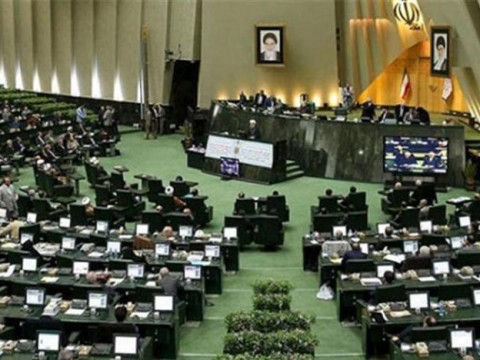
Tehran - Saba:
The Iranian parliament voted in its public session on Wednesday on a draft resolution to suspend cooperation with the International Atomic Energy Agency (IAEA), approving the bill in all its details.
The Islamic Consultative Assembly (Majlis) members voted on the draft resolution obligating the government to suspend cooperation with the IAEA. 221 out of 223 members present voted in favor, with no dissenting votes, and one abstained, according to the Iranian Tasnim News Agency.
Ebrahim Rezaei, spokesman for the parliament's National Security and Foreign Policy Committee, explained the committee's review process for the draft resolution, saying that it was discussed on Tuesday and approved after amendments were made.
For his part, Mahmoud Nabavian, Deputy Chairman of the National Security Committee, clarified that this bill does not include the Islamic Republic of Iran's withdrawal from the Nuclear Non-Proliferation Treaty (NPT), saying, "We are committed to the treaty, and we have declared to the world that all our nuclear activities are peaceful. Therefore, the bill focuses on the issue of cooperation with the IAEA, meaning prohibiting the installation of any surveillance cameras inside the country, whether under the basic or supplementary agreements."
He added, "Any inspector, whether an official, a subordinate, a director general, or someone assigned by the IAEA, will be prohibited from entering the country. Previously, we submitted reports on our nuclear activities to the IAEA, but it leaked this information directly to the Zionist entity. Therefore, the bill stipulates a ban on submitting any future reports to the IAEA."
He continued, "One of the goals of this project is to secure our nuclear facilities. According to Article 4 of the NPT, each member has three rights: research and development, production, and utilization of the nuclear industry. We must consider these rights ours, and we will not resume cooperation with the agency unless these rights are guaranteed and the security of nuclear facilities is ensured. Furthermore, the government has no right to cooperate with the agency, especially with its director (Grossi), whom he considers a spy."
He continued, "We want both the security of nuclear facilities and the continuation of enrichment operations within the country."